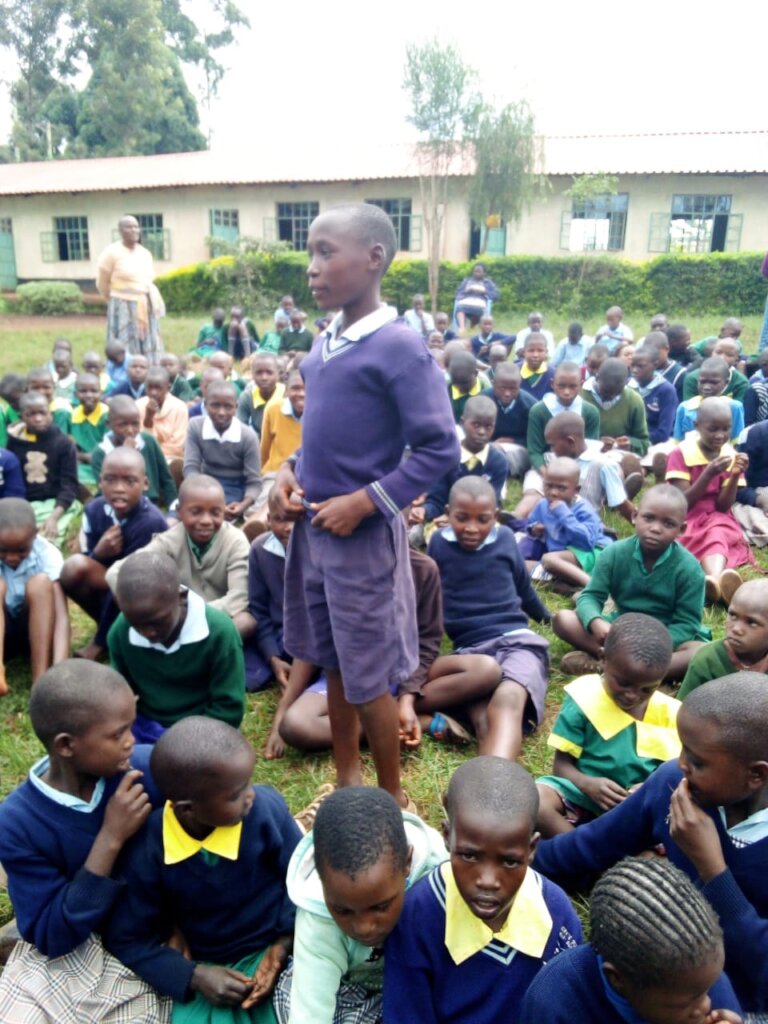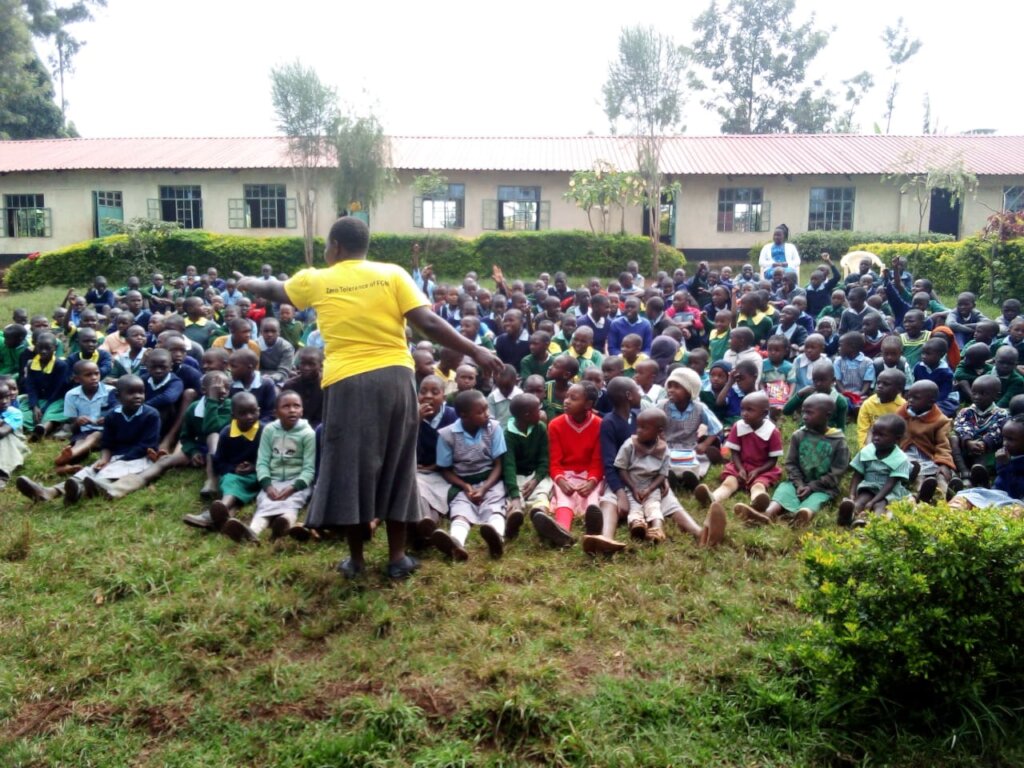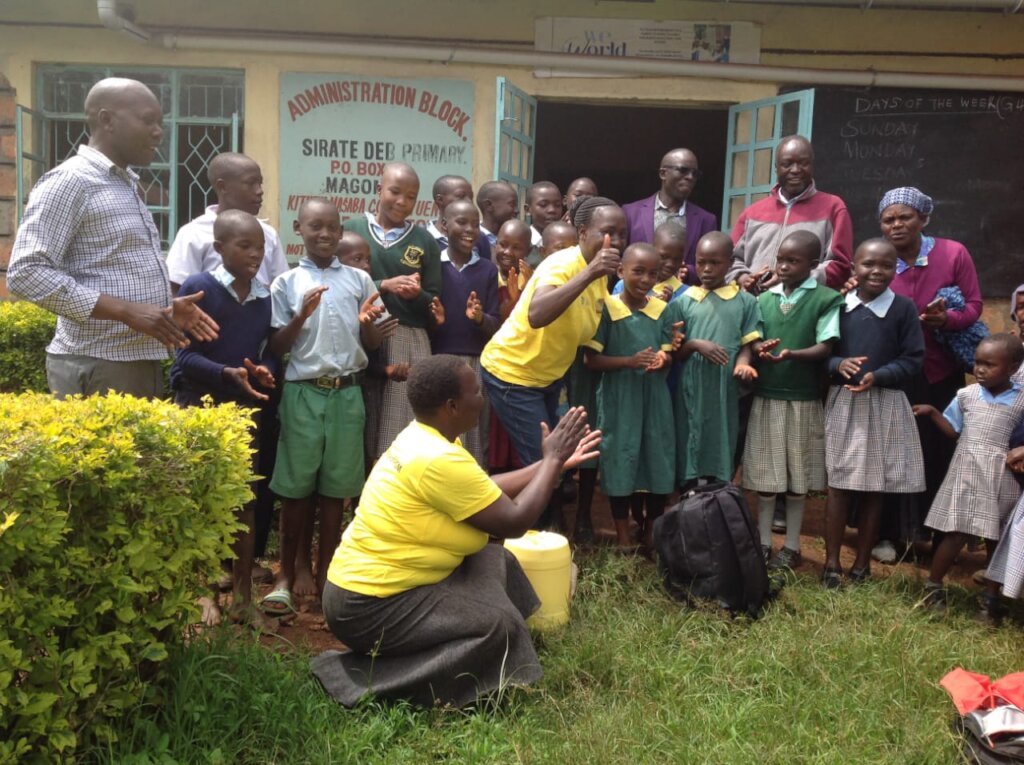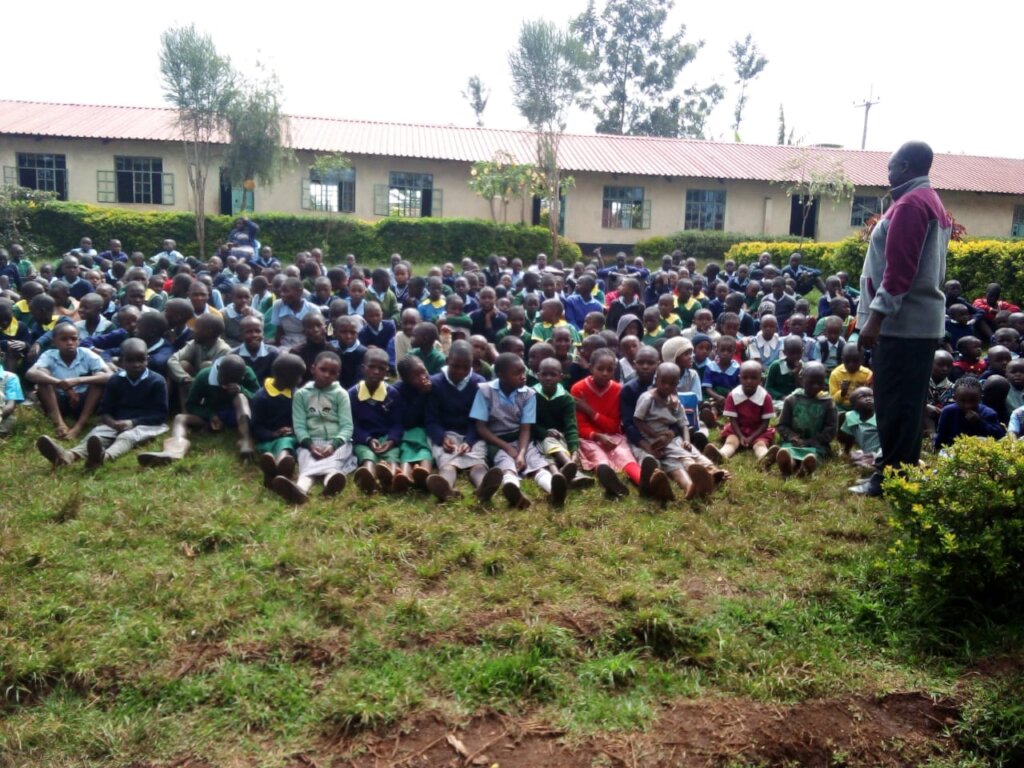By Edah Mokua | Project Manager
Our Esteemed Supporters and Cheerleaders,
Thanks to your important support, we reached 313 pupils including 160 boys and 153 girls at Sirete primary school on 17th April 2023. Sirete is located at a hard to reach sub location in Nyamira County a place which is showing high prevalence numbers especially in hard to reach sub-locations. Our staff and Health and rights promoters often have to go out of their way to access such schools and often have to use a bodaboda (mortal cycle). Our sole objective was to educate the pupils about the harmful effects of FGM, how to resist it through speaking up as well as reporting to the authorities.
As you would expect at first the pupils were shy and secretive in talking with HFAW advocates about FGM. Using their popular education approach which is nothing less than participatory HFAW taught the kids to discover how harmful the FGM practice is; what it is, its effects on children and mothers and the whole community. They ensured that the pupils got to unveil the root causes of FGM. How it is rooted in gender inequalities in this community where only boys are allowed to inherit property and how in some homes girls do not compete equally with girls at school despite the fact that in each of these villages girls number more than boys. They then touched on step by step process for resistance by saying no to the cut, reporting to the 116 number, reporting to the elders, and to the community health promoters.
Slowly by slowly the advocates build the pupils confidence to share and speak up about the trends which they see in their village from year to year. Eliana, not her real name, eloquently shared how she was cut at 10 years. “It was really painful and I could not run away from the women who held me down and covered my mouth with dirty linen.” She said with teary eyes. “I wish I knew all these that you have told us today.” She expressed.
Olive shared how her younger sister was recently transported to her grandmother for the cut. “I wish you had been here, we would have known what to do. “She said. Staff challenged the young boys to fight side by side with the girls in ending FGM and work hard with girls to become Nyamira youth ambassadors to end FGM. They were told that in other parts of Nyamira we already have such anti-fgm ambassadors. “You should be pioneers in this area” said Joyce. And the youngsters did not disappoint. They were more than ready and promised to speak up in the villages and churches.
As our valued Supporter and cheerleader, we want you to know that your financial assistance enables us to accomplish far more than we could ever express in words. Saving just one girl means so much to these girls and the HFAW team.
Please share our donation links with your friends and family and explain why their contribution will safe a girl from the FGM cut. Let them know why you care about this project. Ones again, with much gratitude, we thank you for your continued support.
Sincerely,
Edah Mokua
By Grace B Mose-Okon'go | Project leader, Founder HFAW
By Edah Mokua | Project Manager
Project reports on GlobalGiving are posted directly to globalgiving.org by Project Leaders as they are completed, generally every 3-4 months. To protect the integrity of these documents, GlobalGiving does not alter them; therefore you may find some language or formatting issues.
If you donate to this project or have donated to this project, you can receive an email when this project posts a report. You can also subscribe for reports without donating.
Support this important cause by creating a personalized fundraising page.
Start a Fundraiser


